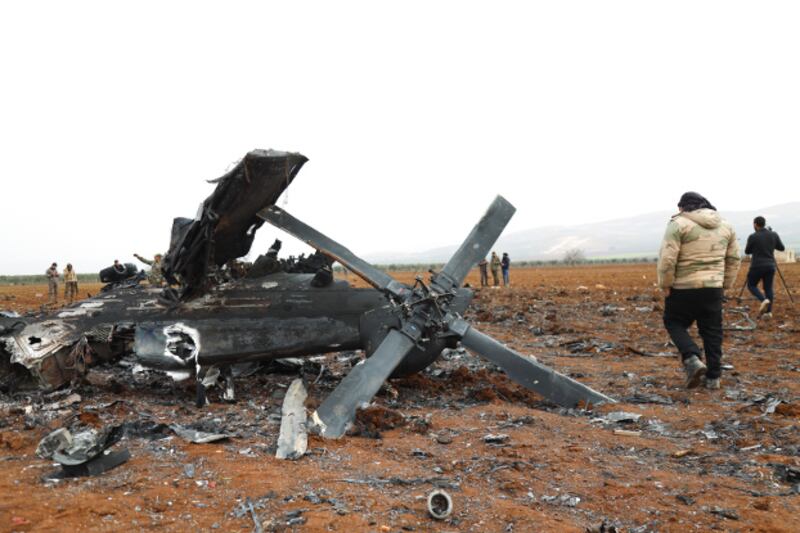An Indonesian charity sanctioned by the United States this week for alleged terrorism financing is rejecting accusations that it had provided funds to militants in Syria under the guise of humanitarian aid.
World Human Care (WHC) has no ties to terrorism and involves itself strictly in humanitarian work in Syria to help child-victims of war, said Luki Abdul Hayyi, secretary general of the NGO.
“[W]e have never funded terrorists. Indeed, we have sent volunteers to Syria, but for humanitarian missions, not for jihad or military training,” he told BenarNews on Friday.
A day earlier, the U.S. government announced it was placing World Human Care under sanctions framed through an executive order on terrorism financing.
The U.S. Treasury Department alleged that the group was linked to the Indonesian Mujahidin Council (MMI), a conservative Muslim group which the United States had proscribed as a terrorist organization in 2017.
“[W]e were surprised by the report, which is based on old information, because WHC is not affiliated with MMI,” Luki said.
The U.S. action against World Human Care came on the same day President Joe Biden announced that the top leader of the Islamic State terror group was killed during an overnight raid by American special forces in northwestern Syria.
The death of global IS leader Abu Ibrahim al-Hashimi al-Qurayshi followed soon after the end of a bloody 10-day battle between international coalition forces and IS fighters who had blasted into a Syrian prison to free hundreds of their incarcerated comrades. More than 500 people were killed during the battle to break the prison siege, news reports said.
During a press briefing at the White House before Biden went in front of the cameras on Thursday to announce the IS leader's death, a senior administration official warned that the terrorist threat was more ideologically diverse and geographically dispersed than 20 years ago.
"Groups such as ISIS and al-Qaeda have expanded across Africa and Southeast Asia. These global networks and affiliates still aspire to attack the United States," the official told reporters.
"Years of sustained counterterrorism operations, pressure has forced them to shift their operating models and constrain their capabilities, but the threat remains serious."

Meanwhile, in announcing the sanctions on World Human Care, U.S. Treasury officials described the NGO as MMI’s “charitable organization” and said it had been involved in some legitimate humanitarian activities.
But “the main objective of the organization was to serve as a cover to raise funds for MMI sympathizers in Syria. In early 2016, World Human Care transferred money to Syria not only for humanitarian needs but also for weapons and fighters there,” the statement said.
World Human Care had held fundraisers near Jakarta but transferred money raised from them to al-Qaeda-linked “elements in Syria,” Treasury officials said.
Within hours after BenarNews published a report on the U.S. announcement, officials from World Human Care posted a comment on the news service's Bahasa Indonesia-language Facebook page describing the allegations as inaccurate.
“We have never funded terrorism or fighters there [in Syria]; we only supported orphans and the poor abandoned in tents as war victims. Our assistance was received by the orphans there, and they confirmed it, and we even conducted direct video calls for that,” according to an excerpt from the comment.
On Friday, Luki acknowledged that Majelis Mujahidin had founded WHC. But, in its current form, Majelis Mujahidin is a peace-loving organization that has renounced the radical ideology espoused by its founder, Abu Bakar Bashir, who no longer is associated with the group, Luki said.
Authorities said Bashir also founded the Jemaah Islamiyah militant group, a Southeast Asian al-Qaeda affiliate blamed for the 2002 Bali bombings and other terrorist attacks targeting Indonesian cities in the 2000s.
Majelis Mujahidin opposes militant groups including Jemaah Islamiyah (JI), Jamaah Ansharut Daulah (JAD), and the Islamic State (IS), Luki told BenarNews.
“The organization’s principles and mission have changed, [and are] not the same as those of Bashir’s,” Luki said.
“Majelis Mujahidin is anti-ISIS. Our volunteers went to Syria to help orphans and needy victims of war,” he said, adding that its charity program had cared for about 1,000 children, all of them Syrian nationals.
According to Luki, the U.S. government had been misinformed.
“We have asked our leadership to correct this misunderstanding,” he said.
Officials at the National Counter-Terrorism Agency (BNPT) in Jakarta could not immediately be reached for comment on Friday.
A senior researcher at the Center for Radicalism and Deradicalization Studies (PAKAR), Muh Taufiqurrohman, said MMI was founded as a militant group and later transformed into an organization focusing on humanitarian work.
“Some MMI activists are also WHC administrators. In my opinion, WHC is like the humanitarian wing of MMI,” Taufiqurrohman said.
WHC volunteers who went to Syria allegedly also worked with al-Qaeda and Tahrir al-Sham, another extremist Islamic group, Taufiqurrohman said.
He said financial sanctions would not have a significant impact on the WHC domestically because the Indonesian government had not tied it to terrorism-related activities. Indonesia, unlike the United States, has not banned MMI.
“The U.S. government needs to approach the Indonesian government for evidence that MMI is a terrorist group,” he said.
“The problem is that the government can’t just make a designation. It has to find a legal basis and evidence of MMI’s involvement in terrorist activities at home and abroad,” he said.
